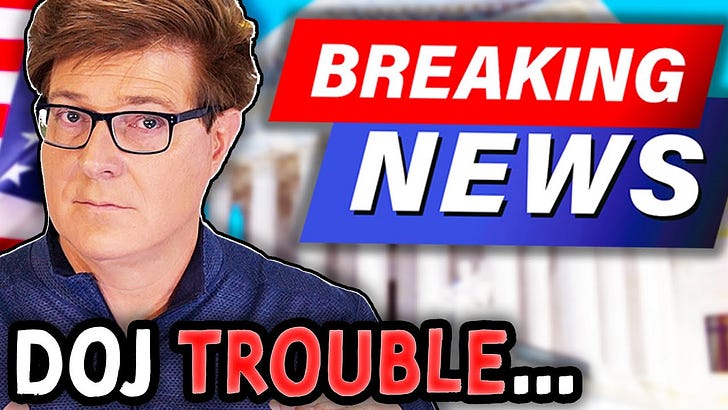The Rule of Law
The principle that "no one is above the law" is only one aspect of the "rule law of law." It's more fully expressed and realized by the Constitutional prohibition against "Bills of Attainder."
The US DOJ is arguing that the Second Amendment does not prohibit excluding one or more classes of people—as chosen by the legislature—from having any right to keep and bear arms. For example: All blue-eyed people, or all people shorter than 5 ft 6 in tall, or whatever other subgroup the legislature may select for deprivation of rights.
The justification claimed by the DOJ for that interpretation of the Second Amendment is the fact that British law in the latter part of the 18th Century denied the right to keep and bear arms to Catholics.
PROBLEM: Any such interpretation of ANY Constitutionally-enumerated right is a violation of the right to due process (Fifth Amendment,) and also of the "privileges and immunities" clause of the 14th Amendment.
More importantly, any law that denies or reduces rights for only some subgroups or subclasses of people--and that does so without requiring a prior criminal conviction, and where the criminal law in question fails to explicitly and specifically authorize that the rights of a convicted person be denied or reduced, and where any denial or reduction of rights was not formally imposed by the convicting court as its sentence for having committed the specific crime in question, is a direct violation of the Constitutional prohibition against Bills of Attainder. A Bill of Attainder is any law that denies or reduces one or more rights for some, but not for all, persons—and does so in the absence of due process.
The point of the "no Bills of Attainder" prohibition is to require that Constitutionally-valid laws deny or reduce rights in the same way, to the same degree or extent, for everyone, without any exceptions or special cases. The well-known (and recently often-heard) maxim that "No one is above the law" is one way to express the same idea. A law that denies rights to only certain subgroups or subclasses of people, or that denies rights differently depending on who you are, effectively puts any persons or groups that are either less affected by the law, or not affected at all, "above the law."
Conversely, a law that imposes a criminal punishment (any deprivation of rights) does NOT qualify as a "Bill of Attainder," if and only if it imposes a criminal punishment SOLELY when the person whose rights are denied (or reduced) has been convicted of a crime, and where the specific punishment, deprivation or reduction of rights is enumerated by the text of the specific criminal law in question as an authorized sentence, and where the court that convicts the person of the crime in question chooses to formally impose that authorized-by-law punishment as the sentence for having been convicted of the specific crime defined by the specific law in question.
_BREAKING: DOJ MAKES TERRIBLE ARGUMENT IN DISARMAMENT CASE..._




Let’s cut to the chase dumb fuck. The definition of “militia” at the time were men of fighting age, and others outside of those parameters deemed fit to fight. There was no standing army. Only officers. Therefore, the Second Amendment never even alludes, let alone refers to citizens not members of the “militia”. Today those people are members of what we called “the armed services” or the “military”.
Now, we can both agree that Congress has the complete and only purview to arm the militia.
So you really are going to make the argument that they also don’t have the purview to arm or disarm a common person on the street not being a member of? Do you have no relationship to critical thinking whatsoever. Not even coincidentally.